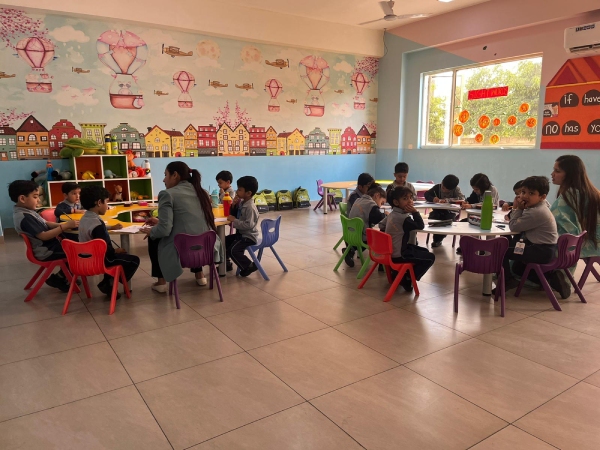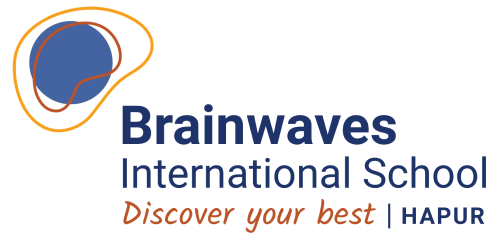Brainwaves International School: Providing Best Pre-Primary Education in Hapur
Pre-primary education is an important stage of learning where students begin to habituate themselves to a routine and form habits. This stage in their lives is ideal to form the right attitudes that will help the young minds excel in academics in the following stages of education.
Brainwaves International School is one of the best schools in Hapur offering a world-class Pre-Primary programme that is holistic, challenging, and comprehensive. It is imparted in a balanced academic setting and is supported by a nurturing environment in the classroom.
We make sure that we offer our students with age-appropriate learning experiences at various stages of their development. We keep training our teachers to meet the emotional, social, and intellectual needs of our young students. A strong focus is maintained on building communication skills in our students from the beginning because communication is the foundation of successful education.
Here are some of the key features of our Pre-Primary programme:
- Holistic development: Our programme is designed to help students develop their personal, social, intellectual, and physical skills.
- Comprehensive: Our programme covers a wide range of topics, including math, science, language arts, social studies, and the arts.
- Nurturing environment: Our classrooms are warm and inviting, and our teachers are patient and supportive.
- Communication skills: We place a strong emphasis on building communication skills in our students. We believe that communication is essential for success in all areas of life.
If you are looking for a pre-primary school that will help your child reach their full potential, then Brainwaves International School is the perfect choice for you.

FAQ
Pre-schools and daycare centres serve different functions in the early childhood landscape. Pre-schools are designed to provide structured early education experiences for young children, typically focusing on preparing them for formal schooling. They offer age-appropriate curriculum, and guided learning activities, and often have trained educators who focus on fostering cognitive, social, and emotional development.
On the other hand, daycare centres primarily cater to the needs of working parents by providing a safe and supervised environment for children during the day. While some daycare centres may offer basic educational activities, their primary emphasis is on childcare and ensuring the well-being of children while their parents are at work.
Pre-schools typically do not administer formal tests or exams to young children. The focus of preschool education is on creating a nurturing and engaging environment that promotes learning through play, exploration, and social interactions. The emphasis is on fostering curiosity, creativity, and foundational skills rather than evaluating children through traditional testing methods.
Instead of tests, pre-schools often use informal assessments and observations to monitor children’s progress and development. Educators observe children’s participation, engagement, and skill acquisition during various activities to understand their strengths and areas for growth. This allows teachers to tailor the curriculum to meet individual needs and provide appropriate support or enrichment as required.
